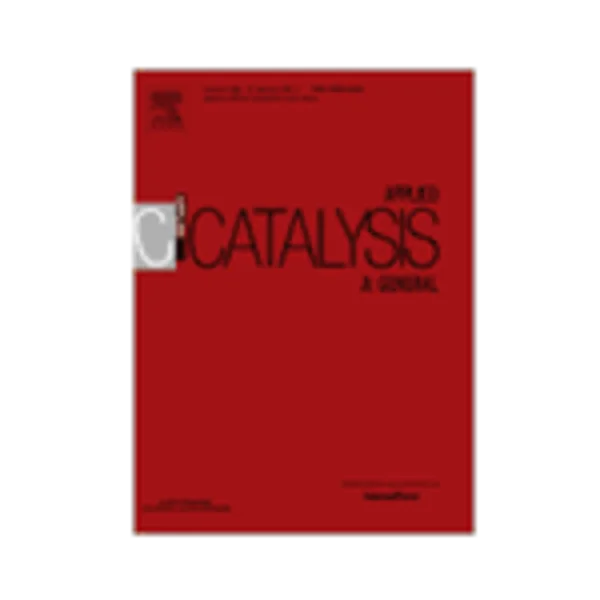-
autothermal reforming of butanol to butenes in a staged millisecond reactor: effect of catalysts and isomers
جزئیات بیشتر مقاله- تاریخ ارائه: 1392/07/24
- تاریخ انتشار در تی پی بین: 1392/07/24
- تعداد بازدید: 1031
- تعداد پرسش و پاسخ ها: 0
- شماره تماس دبیرخانه رویداد: -
dehydration and isomerization of butanol is studied in an autothermal short contact-time reactor containing a 1 wt% pt stage followed by a zeolite or γ-al2o3 stage downstream to convert butanol into butenes with up to 95% yield at residence times on the order of 100 ms. ch4 is fed as a sacrificial fuel to the pt stage and butanol is fed between the stages to avoid undesired oxidation and reforming reactions of butanol over pt. the energy released by ch4 catalytic partial oxidation drives downstream butanol dehydration and isomerization. the effect of catalyst is studied by comparing the performance of hzsm-5, hfer, and γ-al2o3 catalysts. higher yields (20%) of butenes were obtained with γ-al2o3 and hfer than with hzsm-5. the absence of br∅nsted acid sites in γ-al2o3 and the small pore structure of hfer lead to reduced yields of large side products such as higher hydrocarbons that promote oligomerization reactions. a 95% butene yield is obtained with hfer at temperatures ranging from 280–350 °c and a 95% yield with γ-al2o3 at temperatures between 320 and 350 °c. only a 75% butene yield was obtained with hzsm-5 at 230 °c. the effect of hydrocarbon structure on product formation is studied by comparing conversions of each butanol isomer using a heated tube reactor at temperatures between 200 and 400 °c. the reactivity of butanol follows as: t-butanol > 2-butanol > iso-butanol > 1-butanol. trans-2-butene and cis-2-butene are primarily formed from linear butanol isomers, while isobutene forms from branched butanol isomers. conversions and product distributions of butanol isomers formed over hzsm-5 in a staged reactor are comparable (<10% difference across all species) with data using a heated tube reactor at similar temperatures. we successfully demonstrate an alternative pathway to dehydrate butanol into butenes with an autothermal staged reactor compared to conventional methods for applications in small-scale biomass utilization. the largest advantage of this reactor is the integration of highly exothermic autothermal stage and endothermic alcohol dehydration stage which provides an alternative processing technique to maintain the bed temperature.
مقالات جدیدترین رویدادها
-
استفاده از تحلیل اهمیت-عملکرد در ارائه الگوی مدیریت خلاقیت سازمانی و ارائه راهکار جهت بهبود
-
بررسی تاثیر ارزش وجوه نقد مازاد بر ساختار سرمایه شرکت های پذیرفته شده در بورس اوراق بهادار تهران
-
بررسی تأثیر سطح افشای ریسک بر قرارداد بدهی شرکت های پذیرفته شده در بورس اوراق بهادار تهران
-
بررسی تأثیر رتبه بندی اعتباری مبتنی بر مدل امتیاز بازار نوظهور بر نقد شوندگی سهام با تأکید بر خصوصی سازی شرکت ها
-
تأثیر آمیخته بازاریابی پوشاک ایرانی بر تصویر ذهنی مشتری پوشاک ایرانی (هاکوپیان)
-
بررسی اثر ارتعاشات قطار زیر زمینی شهر قم بر بنای تاریخی سر درب مدرسه غیاثیه
-
فلسفه تکنولوژی بر مبنای صدرالمتالهین و از منظر هایدگر
-
بررسی حساسیت کژدم های خطرناک استان هرمزگان نسبت به حشره کش های شیمیایی پیشنهادی who
-
مروری بر آزمایش های مربوط به ستون های لوله فولادی بیضوی پر شده با بتن خود متراکم
-
enhancement of wear resistance of ductile iron surface alloyed by stellite 6
مقالات جدیدترین ژورنال ها
-
مدیریت و بررسی افسردگی دانش آموزان دختر مقطع متوسطه دوم در دروان کرونا در شهرستان دزفول
-
مدیریت و بررسی خرد سیاسی در اندیشه ی فردوسی در ادب ایران
-
واکاوی و مدیریت توصیفی قلمدان(جاکلیدی)ضریح در موزه آستان قدس رضوی
-
بررسی تاثیر خلاقیت، دانش و انگیزه کارکنان بر پیشنهادات نوآورانه کارکنان ( مورد مطالعه: هتل های 3 و 4 ستاره استان کرمان)
-
بررسی تاثیر کیفیت سیستم های اطلاعاتی بر تصمیم گیری موفق در شرکتهای تولیدی استان اصفهان (مورد مطالعه: مدیران شرکتهای تولیدی استان اصفهان)
-
کاربرد شناساگرهای زیستی در ارزیابی محیط زیست
-
اسکن فانتوم، گامی مهم در کالیبراسیون اولتراسوند سه بعدی و مقایسه روش های مختلف آن
-
بررسی رابطه بین افشای مسئولیت اجتماعی شرکت و سهم بازار
-
رفتارهای انحرافی در سازمان: تبیین نقش ادراک حمایت سازمانی و بی عدالتی، ناکامی و شخصیت
-
اثربخشی تصویرسازی ذهنی بر میزان نشخوار فکری و امید به زندگی نوجوانان افسرده شهرستان بابل




سوال خود را در مورد این مقاله مطرح نمایید :